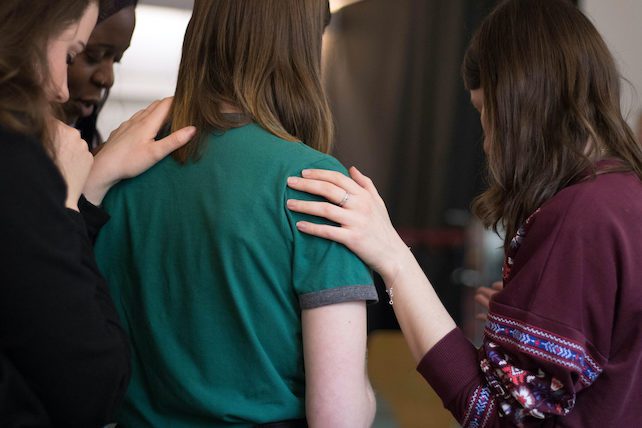The phrase, “wounded healer,” was coined by psychologist Carl Jung to name an archetype going back to ancient Greek mythology, one that describes a would-be hero stymied by a debilitating (perhaps even self-inflicted) wound. This figure is echoed in later literary works from the Arthurian legends to T. S. Eliot’s “The Waste Land.” It is also understood to be a type of Christ because it is “by his wounds that we are healed.”
To be human is to be wounded, one way or another, Nouwen explains in his book, and some are called to minister through those wounds. The symbol of a wounded healer points to the truth that when we imitate Christ, our own wounds, too, have the power to help others heal. Or, as it is expressed on the cover of my edition of the book: “In our own woundedness, we can become a source of life for others.”
You don’t have to be in vocational ministry or in the healing profession to be a “wounded healer,” as Diana Raab notes in an article in “Psychology Today.” Raab offers some characteristics of those who might be one. She says you might be a wounded healer if:
-
- You are a lifelong seeker
-
- You have a strong sense of purpose
-
- People call on you when in need
-
- You’ve helped people since you were a child
-
-
- You look at all experiences as an opportunity for growth
You’re able to find the calm in the chaos
-
And, of course, (perhaps it goes without saying), you are a wounded healer if you have scars of your own.
Such ministry cannot prevent suffering, of course. Such is not possible in our fallen human condition. But it can, Nouwen writes, “prevent people from suffering for the wrong reasons.” He explains, “When we become aware that we do not have to escape our pains, but that we can mobilize them into a common search for life, those very pains are transformed from expressions of despair into signs of hope.”
These words are a much-needed balm.
They also offer a gentle, necessary challenge.
The temptation amid so many revelations of harm — especially within the context of the church, which is supposed to be a place of refuge, safety and love — is retreat or denial or even counterattack.
But to have compassion — literally, to suffer with someone — is the opposite of this temptation. To have compassion is to share someone’s hurt.
A wound is, both literally and metaphorically, an opening.
To be open is to be vulnerable. And to be vulnerable with and for another is a gift.
It is also a kind of power, one that can be wielded in ways that further wound or in ways that help heal.
This power is expressed beautifully in a snippet a friend recently passed along that comes from a lesser-known work by Thornton Wilder called “The Angel That Troubled the Waters.” This mini-drama is set at a healing pool where those sick and in pain gather to await the daily stirring of the waters by an angel.

